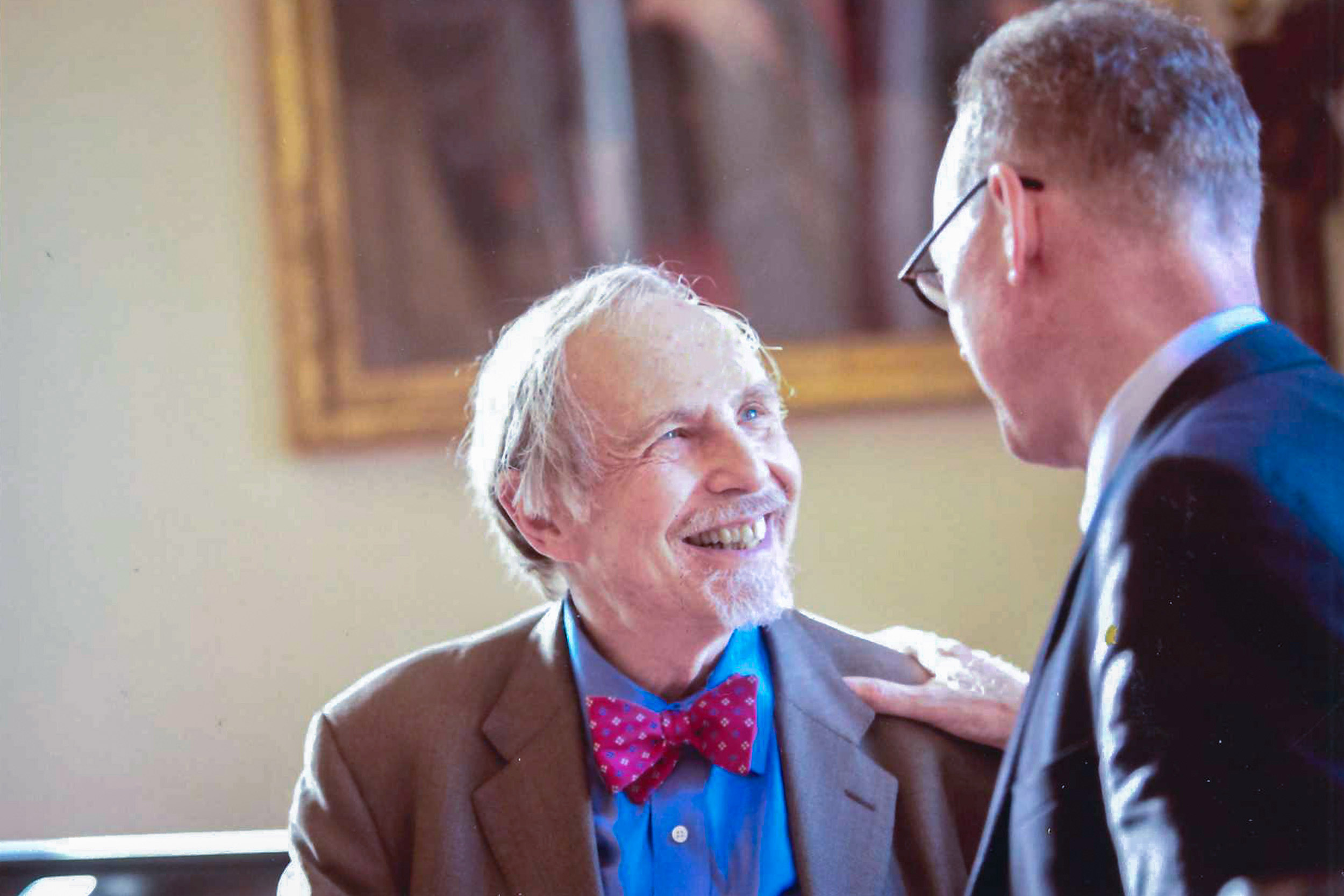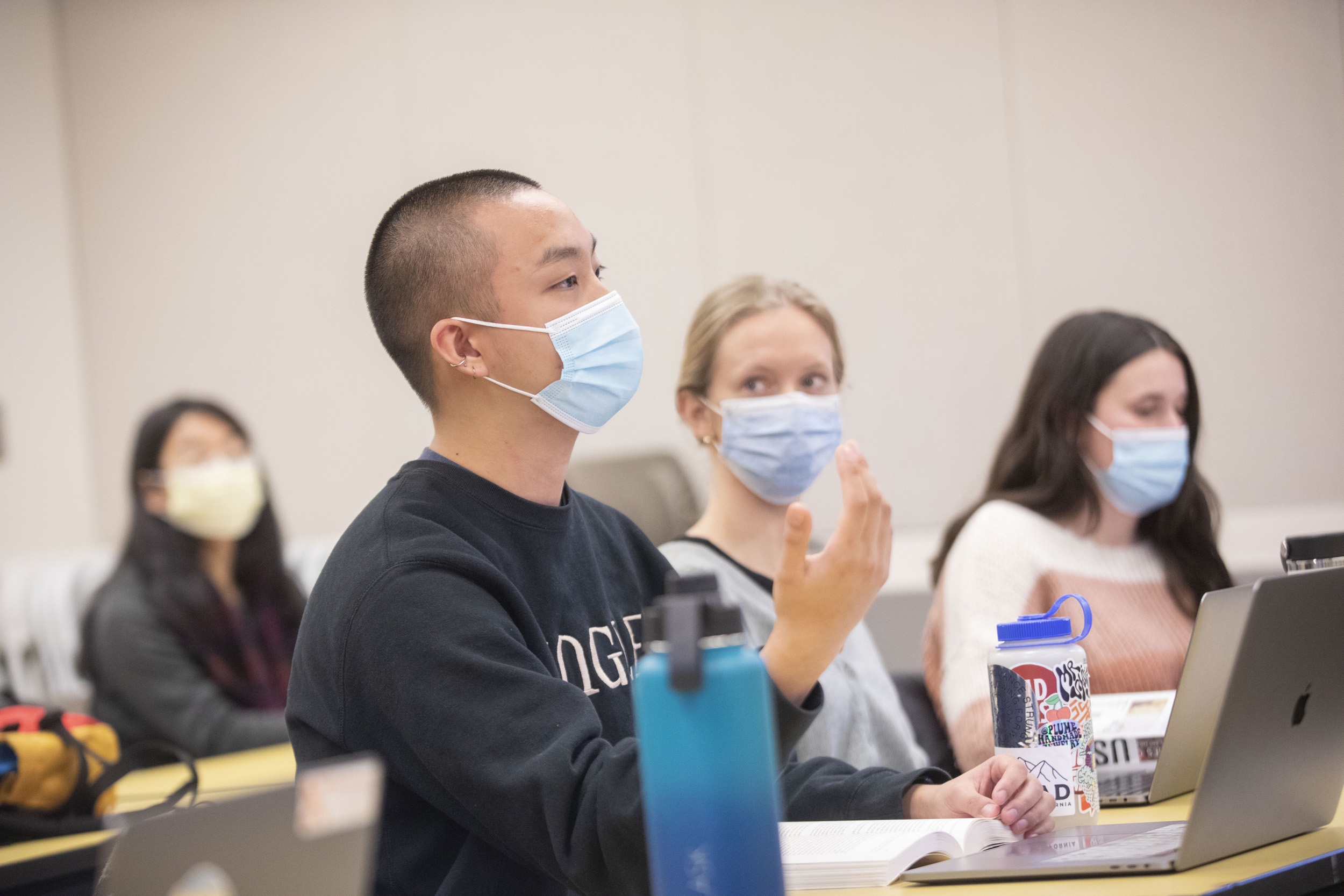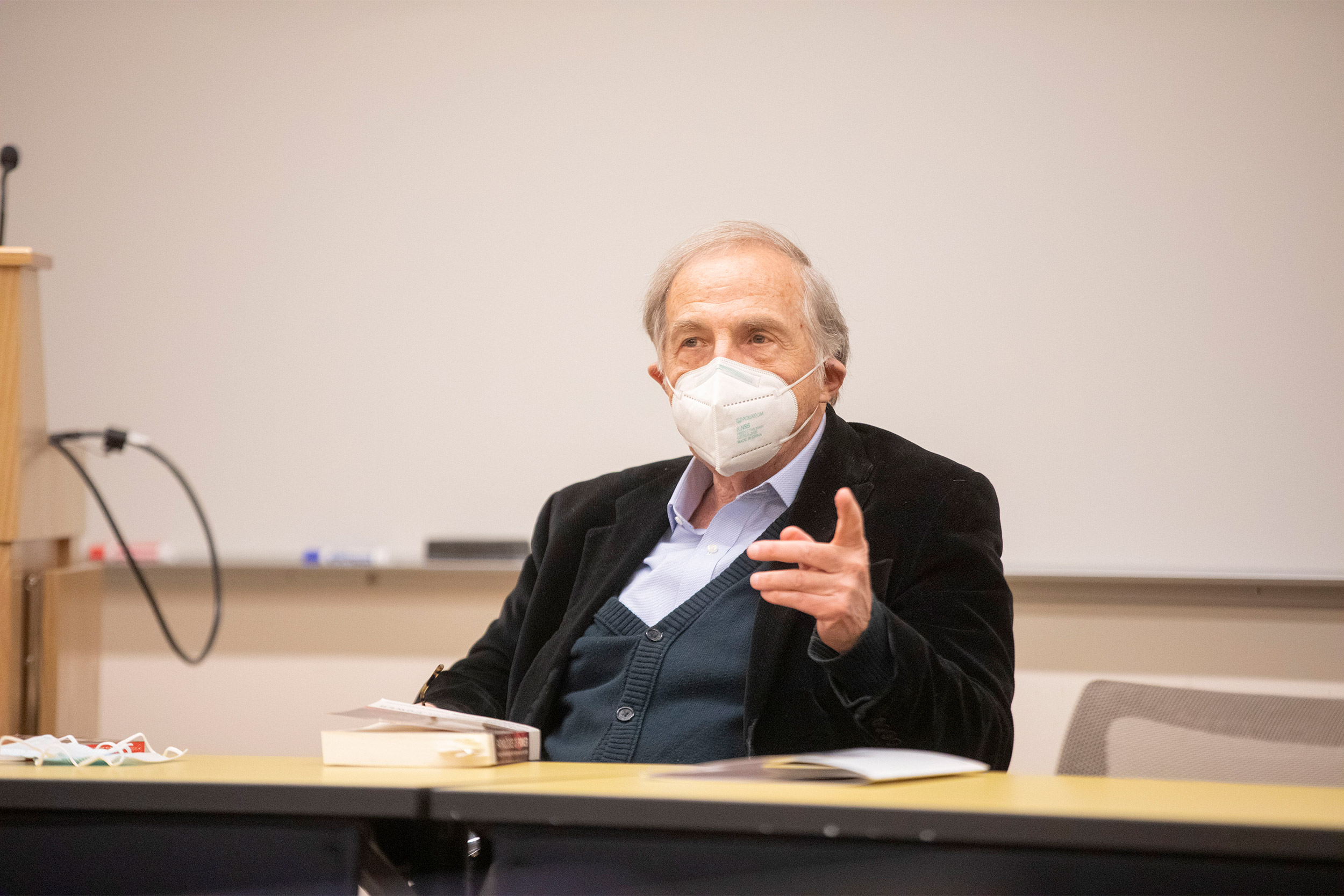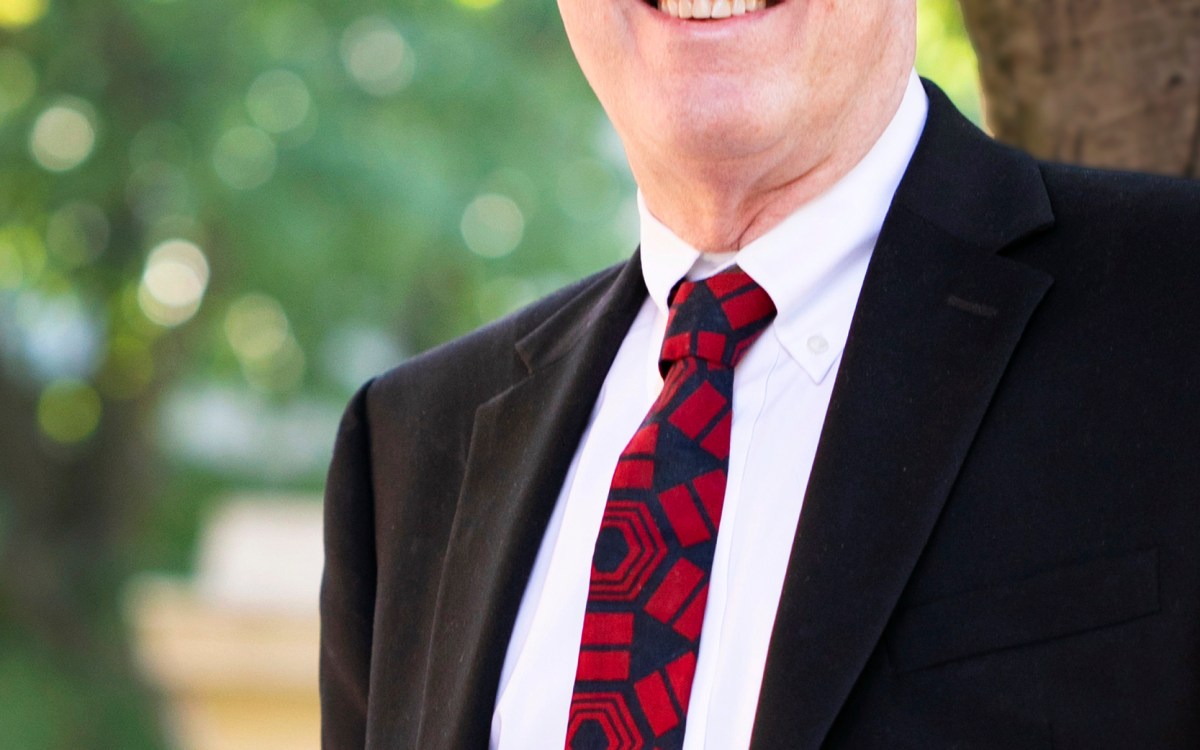
Professor Arthur Kleinman (left) remained close to former student Paul Farmer, who earned both an M.D. and Ph.D. in medical anthropology at Harvard in 1990. The two are pictured circa 2019.
Courtesy of Arthur Kleinman
‘To understand the world but also to change the world’
New class, a mentor’s tribute to beloved student, explores wide-ranging intellectual contributions of late global health legend Paul Farmer
The class is on a first-name basis with a legend of global health.
“Paul’s trying to make you feel outraged,” Professor Arthur Kleinman recently told the students in this homage of a medical anthropology class. They were discussing 2004’s “Pathologies of Power,” with its searing accounts of suffering by the world’s poor. “Paul is not so much addressing policy measures in this book. He’s putting forward a movement for global equity.”
It’s been just over a year since the sudden death of Paul Farmer at 62, the Partners In Health co-founder who brought cutting-edge care to those with the greatest need and the scarcest resources. Kleinman, Farmer’s former teacher and mentor, experienced the loss as a shock. “It was like one of my own children died,” he said.
In the aftermath, the mounting tributes to Farmer, focusing on his moral leadership and medical humanitarianism, felt deserved but incomplete to the Esther and Sidney Rabb Professor of Anthropology. “I felt there was insufficient attention to the importance of his work as a social theorist and ethnographer.”
That’s how Kleinman’s ANTHRO 1826 “Medical Anthropology: Advanced Topics” course evolved this semester into a chronological study of Farmer’s writings and intellectual accomplishments. “It’s my way of working through the fact that he’s not here anymore,” said Kleinman, who is also professor of global health and social medicine and psychiatry at Harvard Medical School. But it’s also a way of carrying on Farmer’s practical use of anthropology, history, and social theory. “All of these things for him were ways to understand the world but also to change the world,” Kleinman said. “And he really emphasized that he wanted change.”


Eighteen undergraduates and graduate students pursuing a variety of fields enrolled in Arthur Kleinman’s course this semester.
Photos by Kris Snibbe/Harvard Staff Photographer
Farmer was a “larger-than-life figure in the world of global health,” said Indrani Guzmán Das ’16, a student in the class who’s currently earning her master’s at the Harvard T.H. Chan School of Public Health (she is dual enrolled at Weill Cornell Medical College, where she’ll earn her M.D. next year). But Farmer played a more accessible role at Harvard, where he earned both an M.D. and Ph.D. in medical anthropology in 1990 before becoming a popular professor and department chair.
Das remembered taking a version of the undergraduate class now known as Gen Ed 1093 “Who Lives, Who Dies, Who Cares? Reimagining Global Health,” then co-taught by Kleinman, Farmer, Salmaan Keshavjee, professor of global health and social medicine at HMS, and Anne Becker, the Maude and Lillian Presley Professor of Global Health and Social Medicine and dean for clinical and academic affairs at HMS. “I remember this very charismatic professor who, whenever he spoke, emphasized the need for caring for all people,” Das said.
Eighteen undergraduates and graduate students pursuing a variety of fields enrolled in Kleinman’s course this semester. “One of the coolest parts is hearing so many different perspectives,” said Katie Sierra ’23, an integrative biology concentrator with a secondary in social anthropology who plans to attend veterinary school in the fall.
All were keen to study with Kleinman, whom Farmer credited for his training as a medical anthropologist. “My motivation was to study Paul Farmer just as much as to study with Arthur Kleinman,” said Matta Zheng, a first-year Divinity School student in Buddhism. Zheng called Kleinman “a personal intellectual hero” who helped inspire his path, with long-term plans to attend medical school and eventually meld the spiritual with biomedical healing.
The class syllabus includes “Pathologies of Power,” published when Farmer was in his early 40s and incandescent with fury on behalf of patients in Haiti, Russia, and Chiapas, Mexico. As Farmer wrote in the introduction: “This book is a physician-anthropologist’s effort to reveal the ways in which the most basic right — the right to survive — is trampled in an era of great affluence, and it argues that the matter should be considered the most pressing one of our times.”
As they discussed the book, students picked up Farmer’s observations about worsening inequality under neoliberalism, his scorn for elites who equate illness with moral failing, and his call for medical outcomes to outweigh cost-benefit analyses. One student saw a subtextual disapproval of aid organizations that profess neutrality. “It seems Paul is saying that is not at all how you should approach things,” she said.
At one point the professor opened the conversation to critique, offering his own take on the book’s fiery prose. “If Paul were in the room with us — wouldn’t that be wonderful, if he were alive and in the room? — he would be a little taken aback by how strong this is,” offered Kleinman, adding that Farmer learned to be more diplomatic over the years, “in part to mobilize resources.”
From there, students wrestled with closer-to-home issues including caregiver shortages, medical racism, and the depersonalizing effects of electronic medical records. Oh, and what if U.S. hospitals stopped fixating on finances and patient throughput? What if they instead developed metrics to gauge things Farmer cared about, like effectiveness of communication or quality of diagnoses?
“One of you might be the one to flip the switch and get hospitals to start measuring care,” Kleinman told them. “This is what reading Paul Farmer is all about. He changed things in this world. What can you do to change things?”






